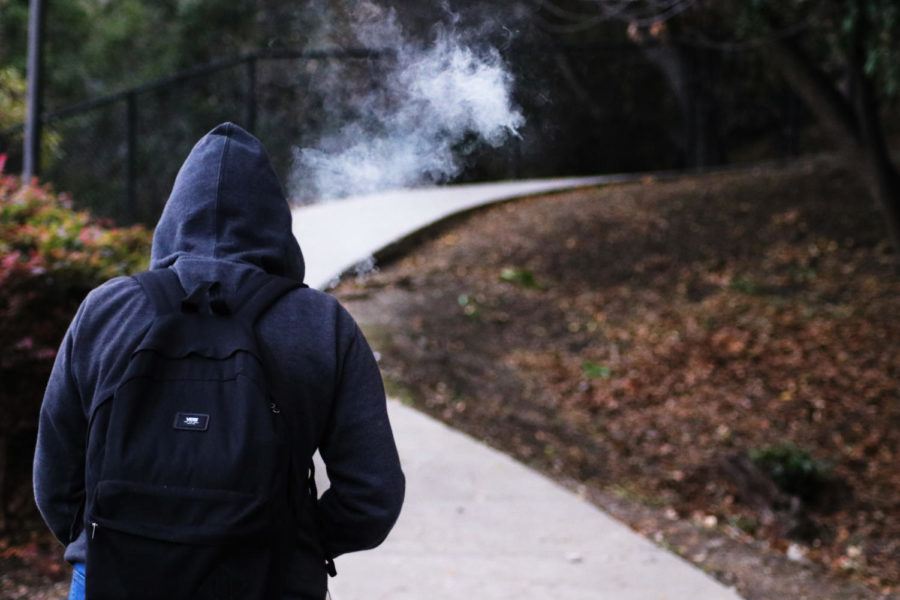With recreational cannabis legalized in California by popular vote only two years ago, many are rightfully curious if and how the products meant for adults are being accessed by teens. California has put in place many regulations to restrict teens access to marijuana, but minors still do it.
Sandy Shaffer* has been getting high since she was in seventh grade. Now she smokes every day.
Even though she refers to it as smoking, a majority of the time is using cannabis vape cartridges that have increased in popularity over the years. They contain concentrated resin and are sold by numerous companies legally in California.
Shaffer gets her carts from an app called Eaze where she places an order and receives the product within the hour. The app works similar to food delivery apps like Postmates and Uber Eats where a driver delivers the products. She can do this with a fake ID that allows her to spend over $1500 a year on cartridges alone.
Shaffer said, “[Smoking] makes me calm and I don’t get stressed as often.”
Whatever the reason, a large majority of the money she spends in the app goes to the California government because of how heavily Eaze is taxed.
However, not all teens use a fake ID to obtain drugs. Curt Fisher* also claims to spend over $1000 on weed a year. Both Shaffer and Fisher use legally made cartridges, but Fisher buys from an intermediary.
The middlemen are usually over the age of twenty-one and buy in bulk to maximize profits. Their prices are generally lower because they don’t have to charge sales tax but the products they sell are the same as the ones found online and in dispensaries.
Because the intermediaries buy the products legally, they pay taxes. When they buy with the intent to distribute to minors, the California government profits.
There are also several other weed distribution companies that sell to minors. Both Shaffer and Fisher mentioned that they used the cartridge brands Brass Knuckles Og and Stiiizzy. Both of their websites feature pictures of their products being used by bikini-clad young women; on Stiiizy’s website, there is a link to their Instagram where there are pictures of their product surrounded by candy.
Stiiizy sells batteries and flavored pods similar to Juuls, but with THC instead of nicotine. Juul got into trouble recently with the FDA concerning how their product appeals to minors with the flavor. With Stiiizy making and advertising similarly flavored products, they make money when these items are bought for or by teens.
Fisher says that Stiiizys are more popular at school than ever.
These products are not harmless either. According to a study by researchers at the University of Wisconsin-Milwaukee, cannabis can negatively impact teens’ thought process and even lower their IQ.
Other negative effects of Marijuana include an increased chance of experiencing anxiety or depression for teens shown in one study. Another study by the Colorado Department of Public Health and Environment shows that legalization did not affect the number of teens using cannabis products so making pot illegal again may not help.
Even anti-drug campaigns show no effect on teens likelihood to smoke weed. This fact is proven with a study by Ph.D. students led by Robert Hornik, where they exposed a group of teen to an anti-drug campaign through most forms of media then interviewed the teens afterward.
Administrative Vice Principal Gregg Patner is worried about the increased potency of legal drug products.
Patner said, “We crack down on it because it’s not safe and not healthy.”
*name has been changed to maintain anonymity


